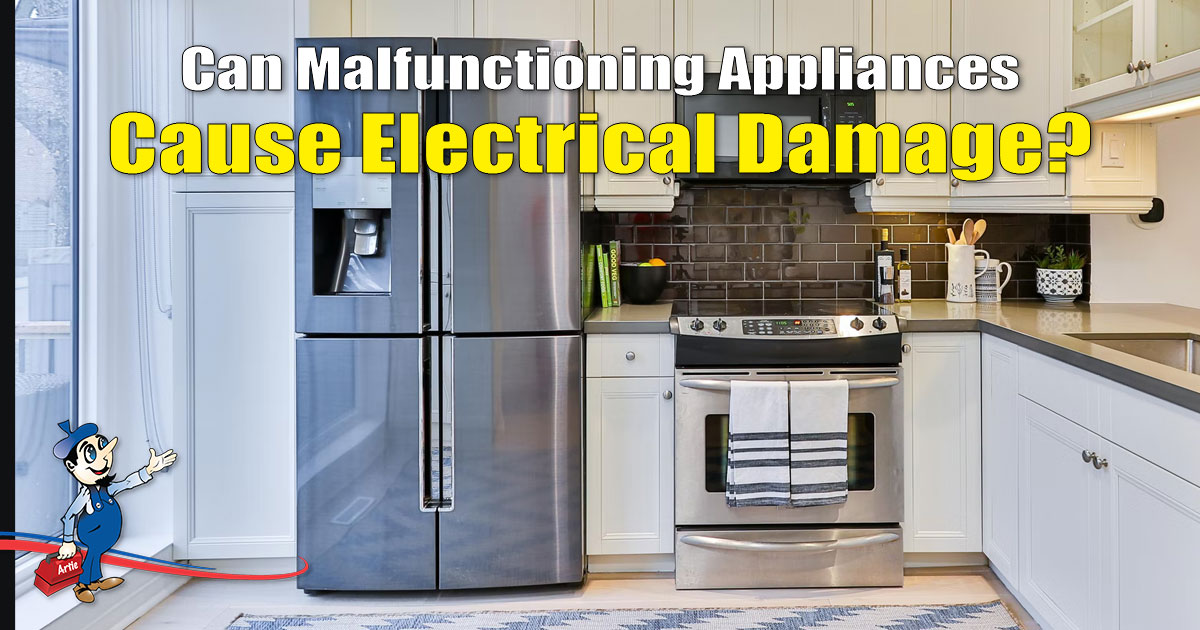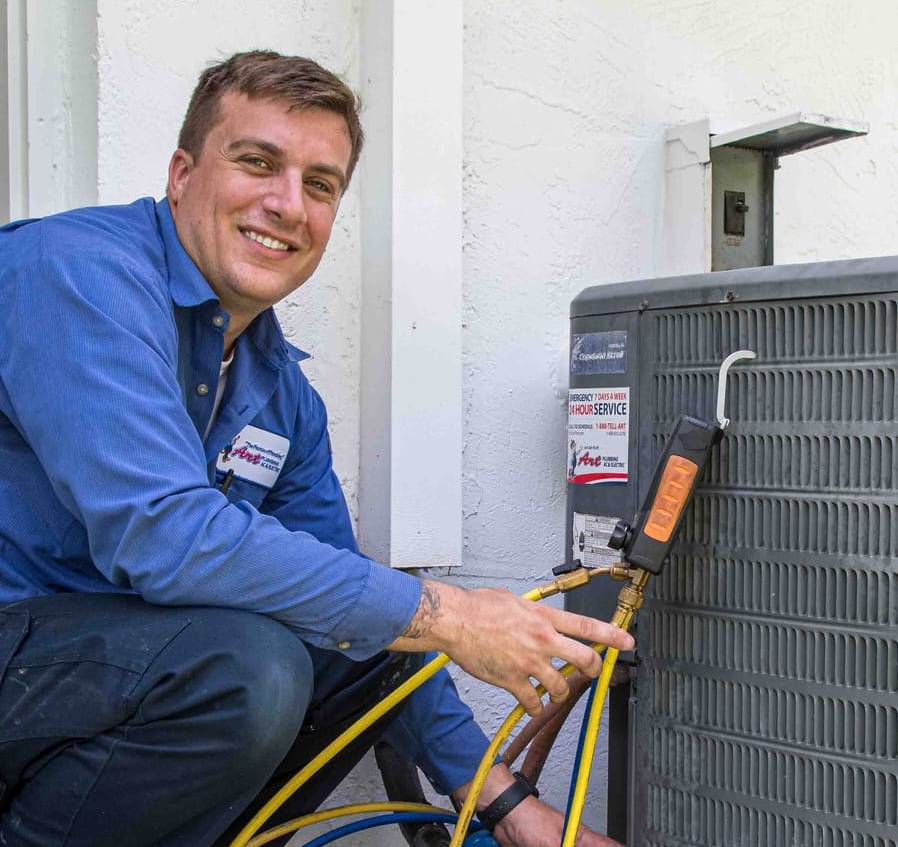Can Malfunctioning Appliances Cause Electrical Damage?

Most people believe that a malfunctioning appliance can be ignored because it poses no harm and we’re here to tell you that nothing could be further from the truth. If you have a faulty appliance connected to the electrical circuit, you need to unplug it immediately!
Ignoring a faulty appliance, and leaving it connected to the electrical circuit is not only dangerous but could result in very expensive electrical damage and repairs to other appliances and your home. Don’t rely on your surge protector, or a tripped circuit breaker to protect you from the extensive damage a faulty appliance can cause.
What Damage Do Faulty Appliances Cause to the Electrical Circuit?
A malfunctioning electrical appliance does more than just trip the circuit breaker. They can cause damage to the whole electrical circuit too.
The potential damage they cause can be classified into the following three categories:
- Surge damage
- Physical damage
- Fire damage
Surge Damage
Most homeowners have surge protectors installed for their personal computers, television, and home theater systems. Some homeowners even have surge protectors installed for the whole house in the event of a power outage or lightning strike.
Surge protectors do a good job of protecting the circuit for power surges, but most appliances use an excess of energy when first switched on, resulting in internal surges. These internal surges send small surges of power to other appliances sharing the same circuit. Faulty appliances send much larger surges, often causing micro-pressor electronics instant damage. Smaller surges can also cause cumulative damage, significantly shortening the lifespan of devices connected to the same circuit.
Physical Damage
Faulty appliances that cause large electrical surges, can cause delicate connectors in light switches and electrical outlets to burn. It sometimes takes only a fraction of a second to permanently damage delicate components of the electrical circuit when a faulty appliance is connected to the electrical circuit. This can, unfortunately, happen even if the circuit breaker trips.
Fire Damage
In the worst-case scenario, a faulty appliance could cause an electrical short that starts an electrical fire. A tiny spark that stars inside a faulty appliance, can potentially ignite wallpaper, curtains, or other materials, resulting in a large, devastating fire.
Another way damaged appliances can cause a fire is through surges. Surges cause the wire to heat up, resulting in insulation or other materials melting and catching on fire. Surges can also result in electrical outlets and switches catching on fire.
Signs That An Electrical Appliance Is Faulty
An electrical appliance does not have to stop working completely to be classified as faulty. Often, appliances appear to be functioning normally but are nonetheless causing damage to the electrical circuit.
Some signs that the electrical appliance is malfunctioning include:
The Circuit Breaker Trips
A tripped circuit breaker is usually an indication of a larger electrical problem. Before resetting the circuit breaker, try to find out why it tripped.
It could be due to:
- A faulty electrical appliance
- A faulty circuit breaker
- A fault in the electrical circuit
- The electrical circuit is overloaded
None of the above can be ignored, as they could result in electrocution or an electrical fire.
A Faulty Switch
If the switch on an electrical appliance stops working, the whole appliance needs to be tested before it’s used again. The switch may be faulty due to wear and tear but is most likely damaged as a result of an electrical surge. Electrical surges may cause visible damage to the switch, but damage to the rest of the appliance may not be visible.
Some indications that the switch is faulty include:
- The switch looks scorched
- The plastic has melted
- The switch will not stay up
A Smoking Appliance
Never use an appliance if you see or smell smoke coming from it. A smoking appliance is an indication of internal components that are burning. This appliance is damaged and should never be connected to the electrical circuit.
The Appliance Is Hot to Touch
Unless it is a heating appliance like an oven, toaster, or other heating devices, an appliance should never feel hot to touch. Even heating appliances should not feel excessively hot. A hot appliance is a definite indicator that something is wrong. Continuing to use the appliance, can damage the electrical circuit and start a fire.
The Appliance Is Noisy
Any device or appliance that suddenly starts making an unusual noise, should immediately be switched off and unplugged. Unusual noises are usually a clear indication that the appliance/device is malfunctioning and needs maintenance.
The Appliance Is Not Functioning Optimally
If the appliance/device is functioning but appears to be operating slowly or not performing as well as it usually does, it’s probably faulty. A fridge that sweats, forms frost, or gets over cold, needs to be unplugged and investigated. Large faulty appliances left plugged in, can damage the electrical circuit, and ultimately damage other appliances on the circuit.
The Device Does Not Light Up
If buttons, switches, or screens on an appliance or device do not light up, the device needs to be unplugged. The device/appliance may appear to be functioning, but when parts don’t light up as they should, it indicates an internal circuit problem.
Art Plumbing, Air Conditioning & Electric Can Repair Your Faulty Electrical Appliances
Are you worried that a faulty appliance has damaged your electrical circuit? Art Plumbing, Air Conditioning & Electric is here to help. South Florida’s residents have always trusted our licensed, insured, and experienced electricians with all their electrical problems.
For any electrical repair or inspection contact us on 1-800-475-1504 Monday to Friday between 8 am to 8 pm, and on Sundays for any emergency.



